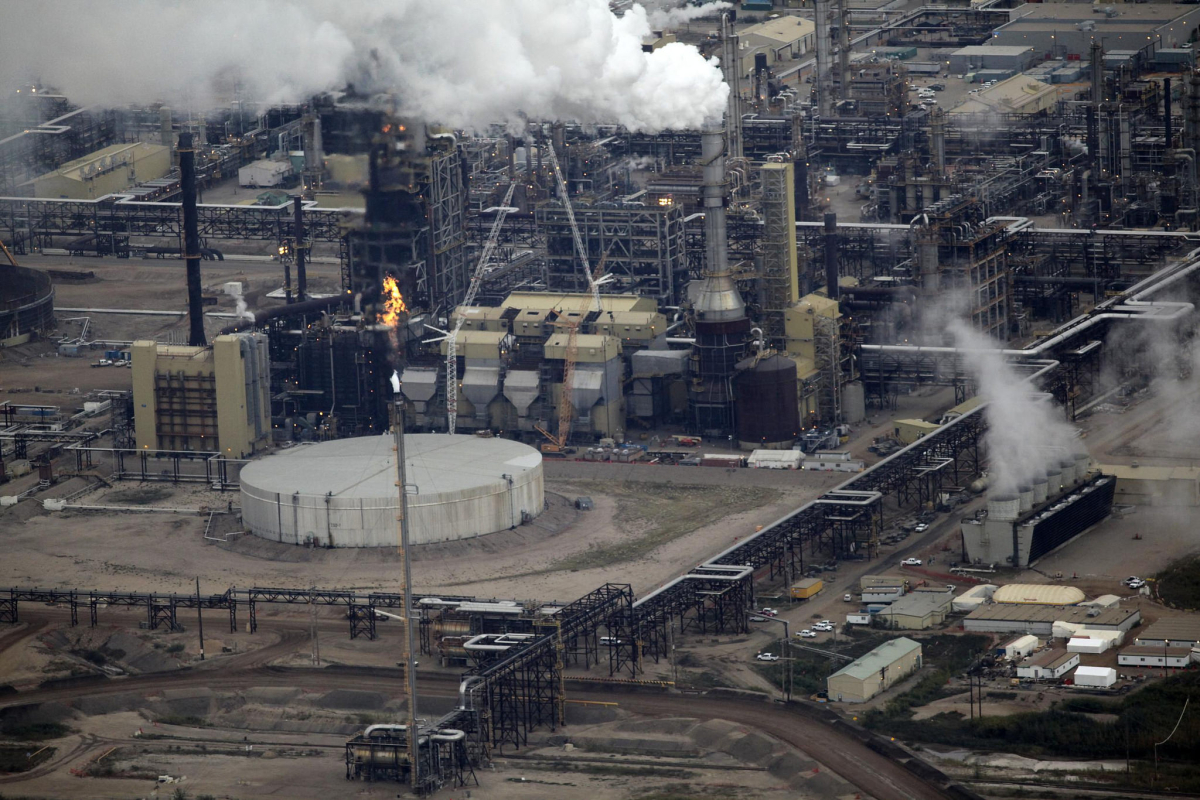Support strong Canadian climate journalism for 2025
A new report argues that citizen opposition has successfully stopped or delayed oil sands pipeline infrastructure, effectively halting expansion of the Alberta tar sands.
Titled Lockdown: The end of growth in the tar sands, the report is the work of Oil Change International in collaboration with a number of major environmental groups.
According to the report, all proposed new pipeline routes out of Alberta are currently facing legal challenges, alongside opposition from the general public, local authorities and regulators. Despite oil industry efforts, no new pipeline has been built since 2010.
At the same time, constraints on the tar sands remain high. Oil Change International’s analysis reveals that the pipelines currently exporting oil sands product out of Alberta are nearly 89 per cent full and the industry will run out of pipeline capacity as early as 2017.
“I think it’s the investors, who are looking at where to put their money more broadly, will certainly be looking at the macro picture here and saying, there’s a lot of risk in future tar sands development,” said Adam Scott, climate and program manager with Environmental Defence.
Environmental Defence contributed to the report, along with Bold Nebraska, Equiterre, the Institute for Energy Economics and Financial Analysis, the Natural Resources Defense Council, Sierra Club U.S. and 350.org.
“The report shows the mix of head winds facing the industries is becoming insurmountable,” Scott said.
Fossil fuels: not a growth industry
The report argues that further growth in the sector is unlikely to be viable without major pipeline expansion and transporting tar sands crude by rail is too expensive to justify major new growth.
“Public opposition and market access constraints have created a de facto ‘no new growth’ scenario in the tar sands where most new projects are unlikely to be greenlighted by producers without major new pipeline infrastructure,” says the report.
That would be despite industry expansion projections that aim at more than doubling production between 2012 and 2030.
Instead, the group’s analysis shows that up to 46.6 billion barrels of proposed tar sands crude could be stranded if four major new proposed pipeline projects — Enbridge's Northern Gateway, TransCanada's Keystone XL and Energy East, and Kinder Morgan's Trans Mountain — aren’t built.
According to the groups, the emissions savings from no growth would be 34.6 gigatons of CO2 equivalent, equal to the annual emissions of 232 coal power plants over 40 years.
“The heavy, dirty, fossil fuel industry should not be looked at as a growth industry into the future,” said Scott.
Michael Dunn, director of institutional research for First Energy Capital in Calgary, said the lack of capacity has “obviously impeded the valuation of oil sands assets. It’s a concern.”
Nonetheless, he opined that more pipeline capacity would likely be added. “Timing remains to be seen.”
Fewer pipelines means more oil by rail?
Sam La Bell, head of research-energy for Veritas Corp. in Toronto, agreed that all the major pipeline options have run into public opposition that slowed down the approval process.
He noted that the U.S. Obama administration never got on board to support Keystone XL, while Kinder Morgan’s Trans Mountain expansion faced vocal opposition in Vancouver and Burnaby, where the expanded pipeline would end.
Northern Gateway faces both stiff public opposition and legal hurdles in terms of Indigenous land claims issues, La Bell noted.
That leaves Energy East, but La Bell said so far negotiations have dragged on and it still has a regulatory process to clear.
“The thing is, if you don’t have pipelines, we have rail, and in my opinion, rail is a less safe and more costly option than pipelines.”
La Bell noted most of the oil drawn from the tar sands is for transportation products such as diesel, jet fuel and gasoline. He proposed electric cars could be a future solution.
“You could centralize your electricity generation and their sources and reduce your reliance on oil.”
But currently electric cars make up a very small part of the automotive market.
Still, La Bell said over the long term hybrids and electric vehicles could help with emission reductions through better fuel economy.
“That’s a big benefit and that’s going to slow oil demand over the next 10 to 15 years.”




Comments